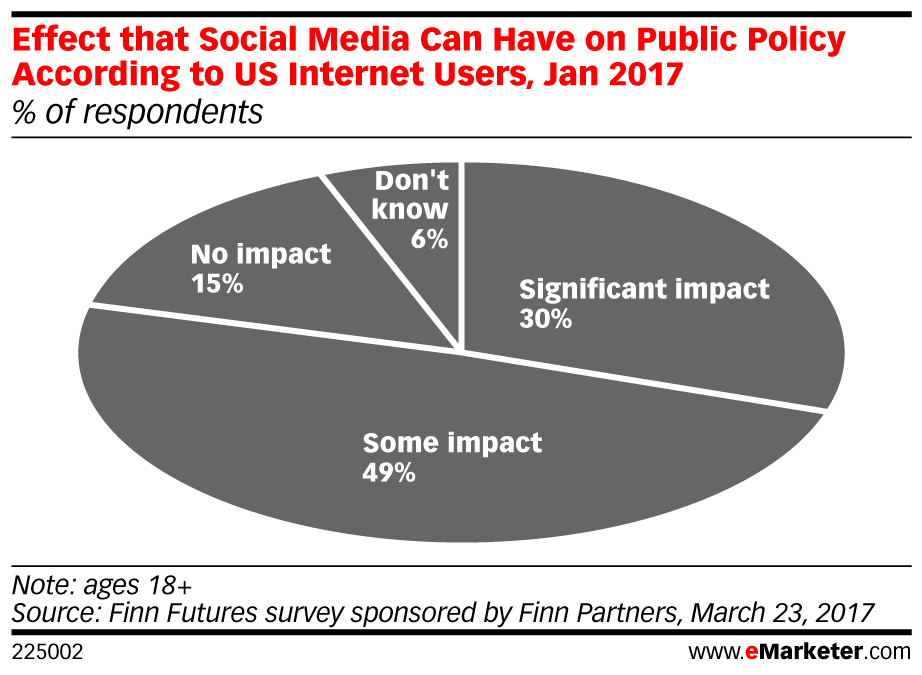Capitol Hill has been full of unprecedented news for months, but on March 20, something truly strange happened. As FBI Director James Comey and NSA Director Mike Rogers faced questions on the Trump administration’s ties to Russia, the hearing took an unexpected turn. President Trump, as is his custom, had taken to Twitter to share his opinions on the matter. So Comey and Rogers were asked to address the president’s tweets in real-time.
The set-up sounds more like a rejected SNL skit than an actual piece of news. And yet, welcome to 2017. Social media has taken on a new role in the current political climate, and the public has taken notice.

According to a March 2017 Finn Futures survey, almost 80 percent of U.S. adults believe social channels have an impact on policy decisions, including 30 percent who say that impact is significant. It’s not the most comforting thought, but the same platforms housing your cousin’s rants on UFO conspiracies now hold legislative clout.
“It’s no secret that social media is influential in many ways, from helping people decide where to go on a vacation to giving them a window into the issues their friends are discussing,” said eMarketer principal analyst Debra Aho Williamson. It makes sense that politicians would use social in a similar manner. They’re able to gain insight into what their constituents value, and can use that knowledge to propose policies that align with those interests.
Relying on social feeds to influence decisions comes with its own set of concerns. The networks tend to place people in filter bubbles. From a politician’s perspective, that means receiving a barrage of opinions from steadfast supporters and passionate detractors. It’s risky for legislators to make choices off such narrow information.
The increased power that these networks hold should come with a responsibility to provide accurate material for informing public sentiment. However, the channels don’t view their obligation in the same light. Facebook and Twitter see themselves as platforms rather than publishers, and thus not liable to be held to the same editorial standards. “We definitely don’t want to be the arbiter of the truth,” Facebook COO Sheryl Sandberg told the BBC in an April interview. “We don’t think that’s appropriate for us.”
Appropriate or not, social media networks need to grasp their societal impact and demonstrate some level of accountability. Or soon enough, the term “Twitter war” might take on a new meaning.
Image by
Unsplash / CC Zero